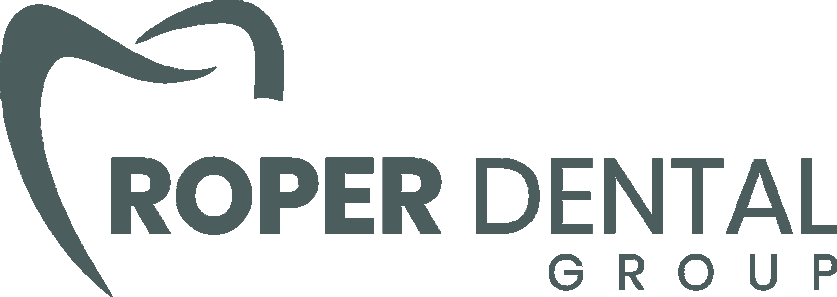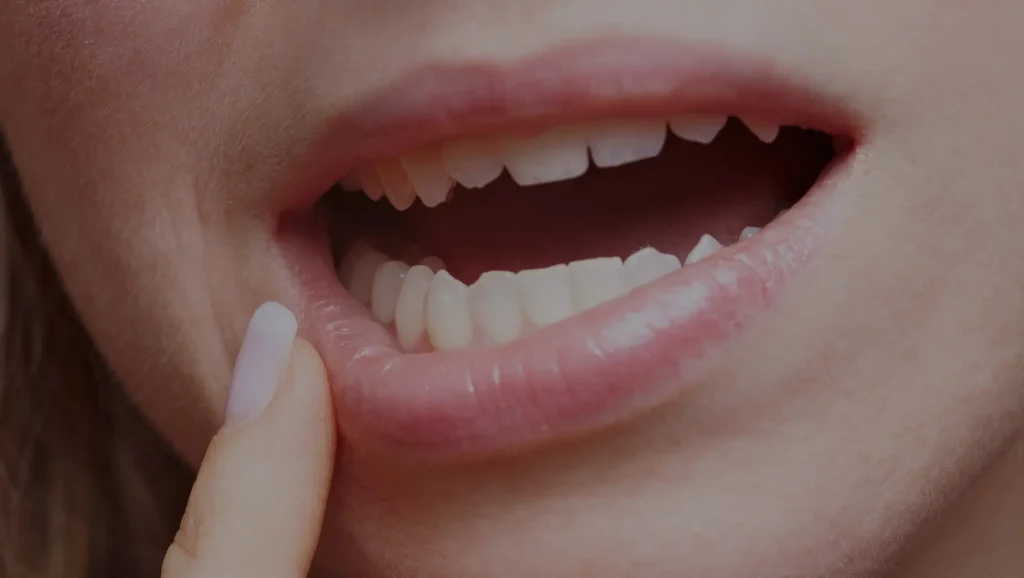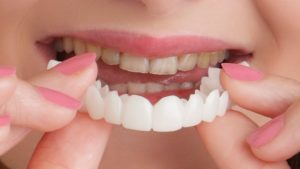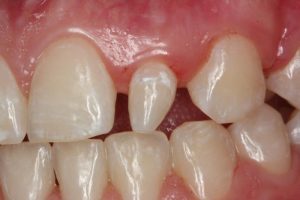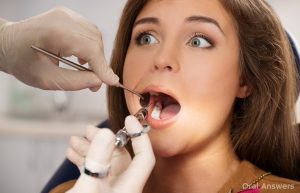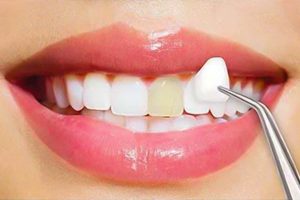I took my mother in for a filling a couple of weeks ago. She is 87 years old. Today she called me and told me a tooth just fell out. I called her dentist and they want her to come in and they’ll do a dental bridge for her. I’m a bit concerned, though. They didn’t even seem to wonder why her tooth fell out. Will this keep happening? Is there an affordable way to help her?
Presley
Dear Presley,
87 or 90-year-old teeth falling out is so terrible. Though, it is wonderful that you are doing your best for your mother like this. Like you, I am concerned about some of what I am hearing. I want to make sure I understand that you said her tooth just fell out. Is that right? For that to happen, it would mean your mother has very advanced periodontitis (gum disease). It would have to be as advanced as it gets. If this is the case, there should have been intervention quite some time ago. I don’t know what your mother’s dentist has been waiting for.
I don’t like the idea of a dental bridge if this is her situation. A bridge is made by suspending a false tooth between two dental crowns that are anchored to the adjacent teeth. This will put additional stress on those teeth, causing them to fail sooner.
I want you to take her to a different dentist and have her evaluated before moving forward. If it is periodontitis, as I suspect, she is going to lose all of her teeth. Ideally, you’d replace teeth with dental implants.
Elderly teeth falling out is quite painful. However, she is 87 years old and you asked for an affordable dental solution. In her case, I would suggest extracting the teeth and getting her completely removable dentures.
Normally, I do not like to recommend removable dentures because of the bone resorption. However, at your mother’s age, it will not have much of an impact on her.
Why Do Teeth Fall Out When You Get Old?
If you are wondering why my mom’s teeth are falling out? Then it’s important to know that teeth can be lost for various reasons as individuals age. The most common reasons for tooth loss in older adults include:
- Periodontal Disease: Gum disease, or periodontal disease, is a leading cause of tooth loss in adults. As individuals age, the risk of developing gum disease increases. If left untreated, gum disease can lead to the destruction of the supporting structures around the teeth, ultimately causing tooth mobility and loss.
- Cavities and Tooth Decay: Tooth decay is not limited to childhood or adolescence. Aging adults may still be susceptible to cavities, especially if they have exposed tooth roots due to gum recession. Untreated cavities can lead to tooth infections and eventual loss.
- Poor Oral Hygiene: Inadequate oral hygiene practices, such as irregular brushing and flossing, can contribute to various dental issues, including cavities, gum disease, and eventual tooth loss.
- Osteoporosis: Osteoporosis, a condition characterized by the weakening of bones, can affect the jawbone that supports the teeth. A weakened jawbone may contribute to tooth loss.
- Dry Mouth: Aging, along with certain medications commonly taken by older adults, can lead to dry mouth. A lack of saliva can increase the risk of cavities and gum disease, potentially resulting in tooth loss.
- Poor Nutrition: Inadequate nutrition can impact overall oral health. A diet lacking essential nutrients can contribute to dental problems and tooth loss.
- Medical Conditions: Certain medical conditions, such as diabetes and cardiovascular disease, can affect oral health and increase the risk of tooth loss.
- Accidents and Trauma: Accidents, falls, or trauma can lead to tooth damage or loss, and the risk of such incidents may increase with age.
- Lack of Dental Care: Regular dental check-ups and preventive care become increasingly important as individuals age. Neglecting dental visits can result in undetected issues that may lead to tooth loss.
It’s important to note that while aging is associated with an increased risk of certain dental problems, maintaining good oral hygiene practices, regular dental check-ups, and addressing dental issues promptly can significantly reduce the likelihood of tooth loss. A proactive approach to oral health throughout life is essential for preserving natural teeth as individuals age.
How to Take Care of Your Teeth When You Are Old?
Taking care of your teeth as you, age is crucial for maintaining oral health and overall well-being. Here are some tips for oral care in older adults:
- Regular Dental Check-ups: Schedule regular dental check-ups, typically every six months or as recommended by your dentist. Regular exams allow for the early detection and treatment of dental issues.
- Maintain Good Oral Hygiene: Brush your teeth at least twice a day with fluoride toothpaste. Use a soft-bristled toothbrush and gentle, circular motions to clean teeth and gums. Don’t forget to clean your tongue and the roof of your mouth.
- Floss Daily: Flossing is essential for removing plaque and food particles between teeth and along the gumline. Floss daily to prevent cavities and gum disease.
- Use Mouthwash: Rinse with an antimicrobial or fluoride mouthwash to help reduce plaque, fight bacteria, and strengthen teeth. Consult your dentist for recommendations.
- Address Dry Mouth: Dry mouth is common in older adults and can contribute to dental issues. Stay hydrated, chew sugar-free gum, and talk to your dentist about saliva substitutes or medications to alleviate dry mouth symptoms.
- Be Aware of Medication Side Effects: Certain medications may have side effects that impact oral health. Consult with your healthcare provider or dentist if you experience dry mouth, changes in taste, or other oral issues due to medication.
- Quit Smoking: If you smoke or use tobacco products, quitting can significantly improve your oral health. Smoking is a major risk factor for gum disease, tooth loss, and oral cancers.
- Eat a Balanced Diet: Consume a balanced diet rich in nutrients, including calcium and vitamin D, which are essential for maintaining strong teeth and bones.
- Wear Dentures Properly: If you wear dentures, clean them daily and follow your dentist’s instructions for proper care. Ensure that your dentures fit well to prevent irritation and maintain oral function.
By adopting these habits and staying proactive about oral health, older adults can enjoy a healthy and functional smile for years to come. Regular communication with your dentist and healthcare team is crucial for addressing specific concerns and maintaining optimal oral health

